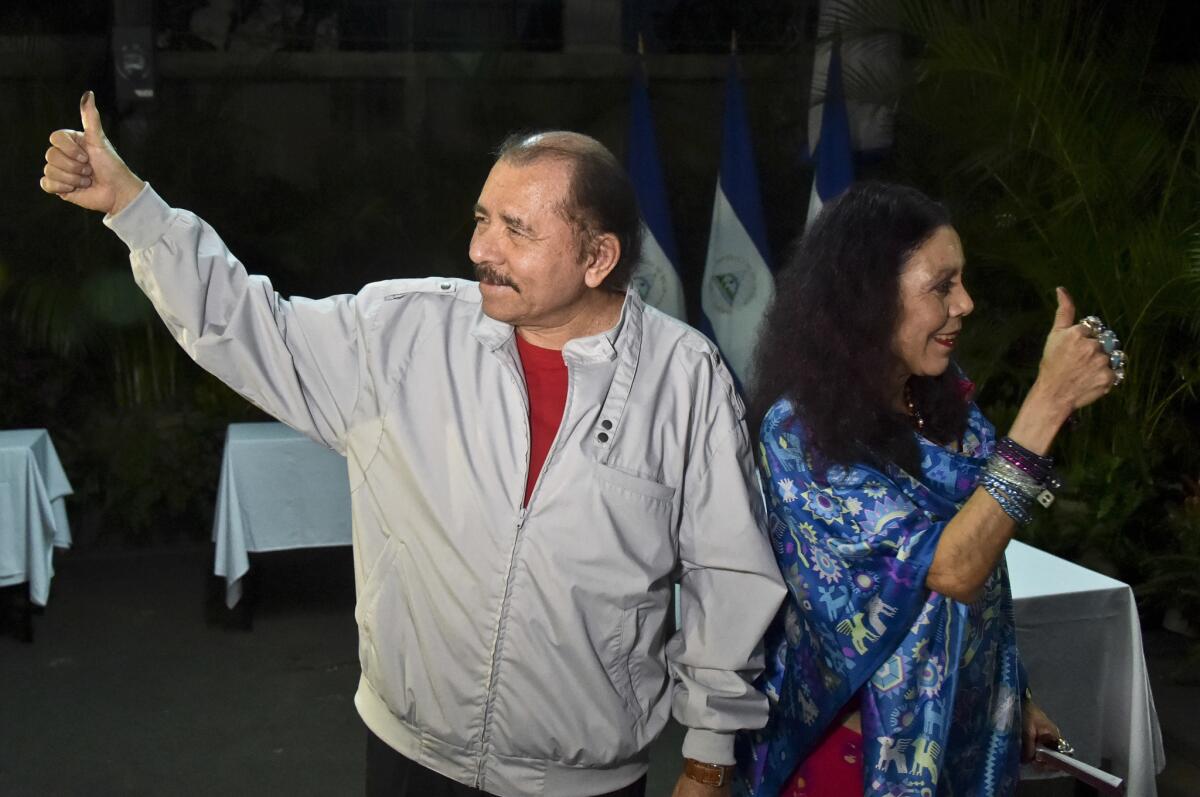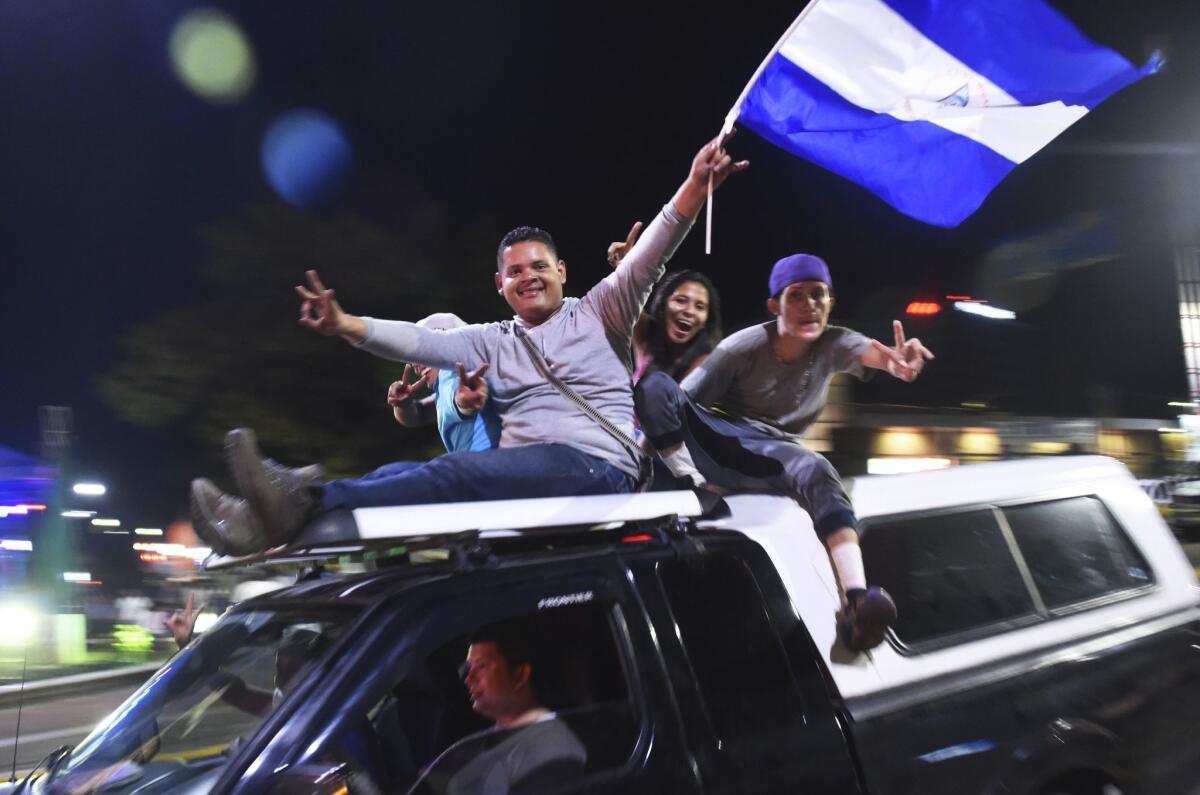Daniel Ortega wins a third term as Nicaragua’s president, flanked by his wife as vice president

- Share via
Reporting from Managua, Nicaragua — President Daniel Ortega won reelection to a third consecutive term as Nicaragua’s leader, electoral officials said late Sunday as they released early results from an election that the opposition called a farce.
With about a fifth of ballots counted in the six-candidate presidential race, Ortega had more than 71% of the votes, the president of the Supreme Electoral Council, Roberto Rivas, said.
Ortega ran with his wife, Rosario Murillo, as his vice presidential candidate in a race that pitted him against five lesser-known candidates after court rulings weakened the opposition.
Critics of the government said the election was unfairly tilted against the opposition, but Murillo praised the process. Emerging with her husband after casting their ballots shortly before the polls closed, she called the vote “an exemplary, historic election.”

There were no vote counts yet for 92 congressional seats that were also contested Sunday.
Rivas also said 65% of Nicaragua’s 3.8 million registered voters participated in the election. The opposition, which had urged people to boycott the vote, disputed that, contending turnout was low. The main opposition movement, the Broad Front for Democracy, estimated “more than 70%” of voters did not cast ballots.
Ortega and his leftist Sandinista National Liberation Front have benefited from the Central American country’s steady economic growth and low levels of violence compared to neighboring Honduras and El Salvador. Many Nicaraguans also cite the first lady’s social programs as a major reason for the governing party’s popularity.
But critics accused Ortega and his allies of manipulating the political system to guarantee he stayed in power for a new five-year term by dominating all branches of government, allowing indefinite presidential reelection and delegitimizing the only opposition force seen as capable of challenging him. They said he wants to form a political dynasty together with his wife.
“I don’t think it’s worth voting and wasting time, because it’s already fixed,” Glenda Bendana, an appliance sales executive in a Managua shopping mall, said. “Here they have taken away not our right to vote, but to choose. Ortega wants to die in power and leave his wife to take his place.”
Eva Duarte Castillo, with a degree in marketing, was among those who went to the polls, though she didn’t say how she voted. “I came to vote because it is not only my right as a citizen, it is also my duty. It is a responsibility and I exercised it. I’m happy,” she said at a polling station in the capital’s Altamira Managua neighborhood.
In July, Nicaragua’s Supreme Electoral Council effectively decimated the opposition by ousting almost all its members from congress — 28 active and alternate legislators from the Liberal Independent Party and the allied Sandinista Renovation Movement — for refusing to recognize Pedro Reyes as their leader. Reyes was named head of the opposition by the Supreme Court but is seen by many as a tool of Ortega.
Many Nicaraguans viewed Ortega’s five challengers as weak opponents who were put on the ballot to make it seem the president had legitimate competition.
After helping topple the dictatorship of Anastasio Somoza as a Sandinista guerrilla leader, Ortega ruled Nicaragua in 1979-1990, then lost power in an unexpected electoral defeat. He returned to the presidency through the ballot box in 2007.
Ortega will be facing an increasingly difficult regional landscape in his new term. Leftist ally Venezuela is overwhelmed by an economic crisis and Cuba is normalizing relations with the U.S. The U.S. Congress is working on legislation to require the U.S. government to oppose loans to Nicaragua from international lending institutions.
“The lack of Venezuelan support, the international price of oil, the price of our exports and the possibility that [U.S. legislation passes] makes it a more complicated outlook for Ortega in the next term,” said Oscar Rene Vargas, a sociologist and economist at Central American University in El Salvador.
ALSO
Nicaraguan President Daniel Ortega appears headed to reelection, with his wife as vice president
Seeking bargains, and hope, at the market swallowing Nicaragua’s capital bit by bit
Montreal has had only 19 homicides this year. Fewer guns may be part of the reason why
More to Read
Sign up for Essential California
The most important California stories and recommendations in your inbox every morning.
You may occasionally receive promotional content from the Los Angeles Times.










